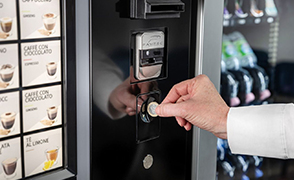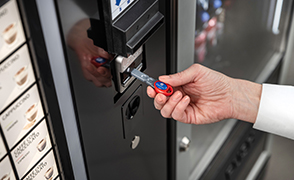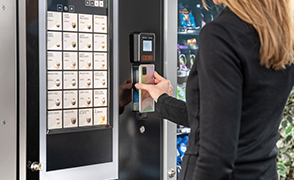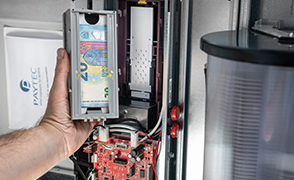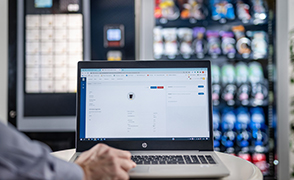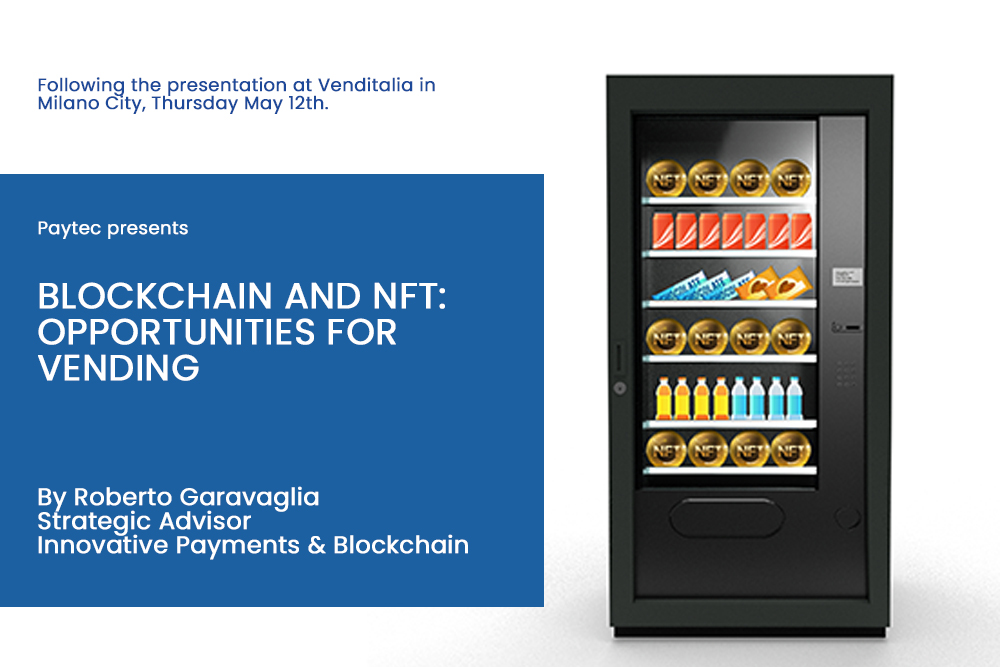
Blockchain and NFT enable new sales channels, among which Vending stands out. The digitization of a value through NFT allows you to sell any (im)material asset and the rights associated with it, allowing its distribution also through vending machines.
By Roberto Garavaglia, Innovative Payments and blockchain Strategic Advisor
Early morning; the office is crowded. Some colleagues don’t take their eyes off their notebook, others have already faced yet another quarrel with their boss, yet others are unable to restrain the usual humor that earned them the epithet of funny guy. Suddenly, a small group gets up, with one and only goal: the coffee break.
The diversion that this small group of employees usually allow themselves, however, today will offer them something truly unique and unexpected. Alongside croissants, cappuccinos, coffee and chocolate-flavored drinks, the machine offers the curious bystanders a series of new “items”, like a weekend trip to Normandy, a badge to access the metaverse of a well-known fashion brand (including a virtual accessory that you can show!), a charitable donation, a last minute offer for tonight’s concert by a trendy performer, the wing of a castle and a hall in some of the most famous monuments.
If, when reading the title of this article, you were wondering what NFTs and the blockchain have to do with vending machines, well, … now you know where you can get insights! The cheerful group of colleagues, at first astonished by such an “extension of the offer”, will now be happy to answer you.
We’ll leave it to the reader’s imagination to conclude the short tale as he sees fit. Let’s instead come to understand what it really is about.
What are the opportunities for the vending sector and what are the strategic development scenarios?
Blockchain and NFT (acronym for Non-Fungible Token, … yes, we are sure, you certainly have heard these words more than once recently), enable new sales channels, among which Vending stands out. The digitization of a value through NFT allows you to sell any (im)material asset and the rights associated with it, allowing its distribution also through vending machines.
NFTs are not just a trend! Although they have been brought to the fore thanks to crypto-art, they are already able to look beyond, making us understand the relevance they will have in the web3 and in social relationships increasingly mediated by technologies such as artificial intelligence or augmented reality and new digital ecosystems such as the metaverse. The development of NFT projects makes it possible to make several processes more efficient in multiple supply chains where this innovation appears truly disruptive.
Towards the era of “distributed” access
Twenty years later, we can no longer speak of the “era of access” in the Rifkinian perspective, where the accessibility of a product was mediated by central entities: platforms. The role of gatekeepers is now gradually being downsized and the boundaries of the platform economy are fading.
In the web3, access is not mediated by third parties, the data are owned only by those who can claim the availability; trust in exchanges is surrogated in a decentralized algorithm (via smart contract), performed on distributed platforms, including blockchain.
In this context, NFTs play a fundamental role; tools for the digital representation of a value (any asset), offer their own “crypto-uniqueness” to support trading in the absence of intermediaries, optimizing sellout processes and opening new value chains.
To learn more, you can download the slides presented by the writer, a guest of Paytec at the Venditalia fair in Milan City, Thursday 12 May.
Back to Magazine